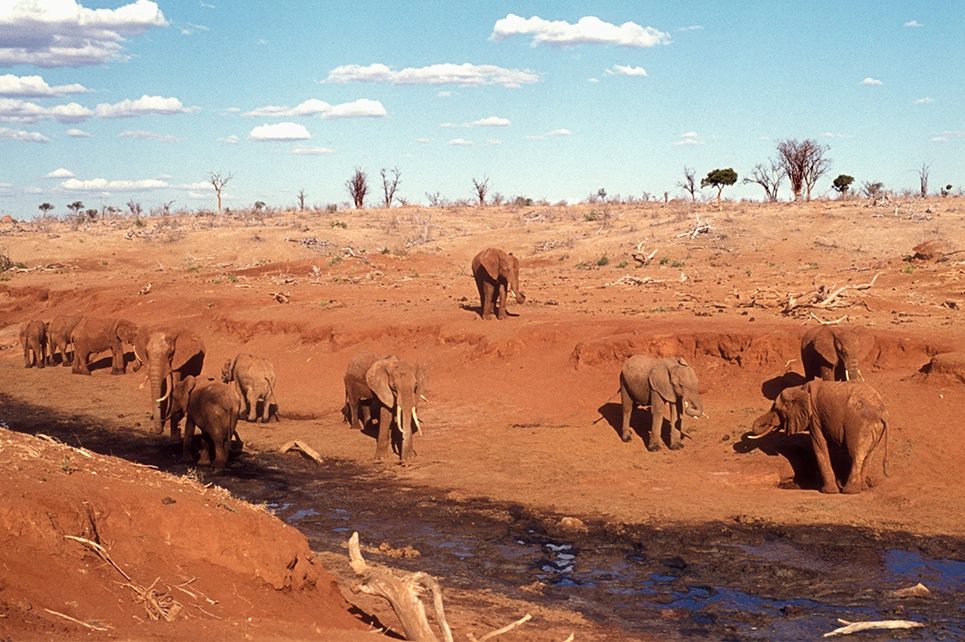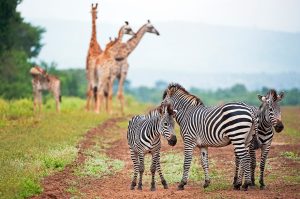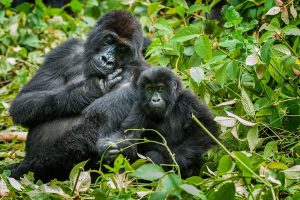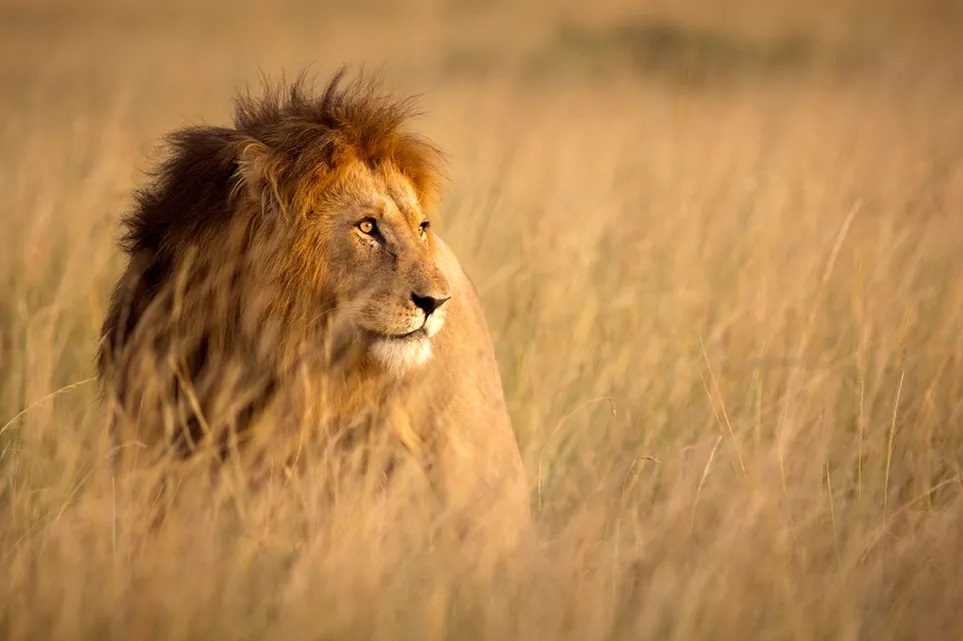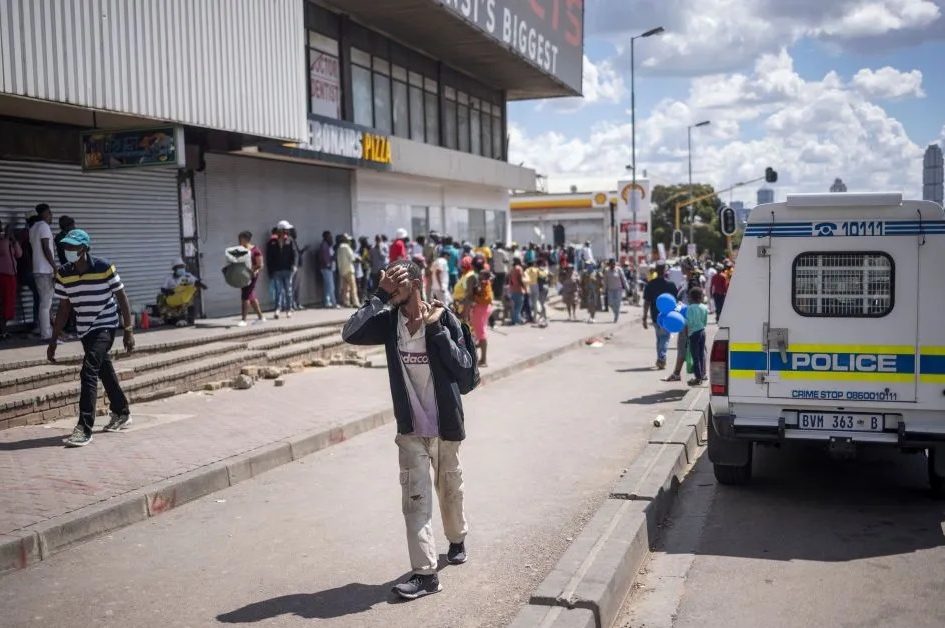Laikipia, Kenya
I realized the worst drought of this generation was at last over this morning when two Samburu gentlemen arrived on the farm, asking to buy rams. My nomadic neighbors sense very well when it’s time to put a tup in with the flock. In just this month a full moon and the alignment of Lokir Ai and Lakira Dorop — Jupiter and Venus — had brought six inches of downpours, equal to almost all of last year’s rain and half of the precipitation in 2021. As Mr. Lemartile crouched behind my Dorper rams, happily dandling their testicles for size and girth, we caught up on gossip and everybody was in such a good mood there was no need to bargain over prices. Flinging his red toga over his shoulder, Lemartile spat in the dust, punched numbers into his smart phone and paid his bill with M-Pesa digital money.
The hard times in my life have come and gone, but few have lasted unbroken for close to three years
On the roads in recent days, I’ve passed Samburu warriors wearing a new fashion of headdress with all their beads and dingley-danglies, which is a mohawk of spikes that reminds me of the Statue of Liberty’s seven-spiked crown. I suspect it’s not in celebration of King Charles’s coronation, but rather the lovely weather. In this corner of Africa, news of rain is part of a greeting, the lack of it is a shared burden or tragedy, and the arrival of it is a source of unbridled happiness to be enjoyed by us all.
Since the drought began on us thirty-one months ago it has been most strange. The dry hurt everybody across East Africa, yet there were downpours here and there and the cliché in conversations was that the rain had been “patchy.” For us on the farm, we got hardly anything. I’d wake in the night and see storm lightning on the horizon, the dry thunder and booms — and it passed us by. I’d smell the almost erotic scent of petrichor and yet it would pass by with a few tantalizing drops and nothing, nothing more.
This went on endlessly, month after month. The hard times in my life have come and gone, but few have lasted unbroken for close to three years, and of course a man takes drought personally. It’s an emasculation. At the start I had a barn full of hay, a herd of fat cattle, a thousand fruit trees and a world of green grass. By the end I had cows that looked like a BBC news bulletin about famine, an orchard of dead sticks and so much dust that it got in between our toes, in the bed, and in our eyes.
Drought is hard, expensive and very boring. You can’t do anything in drought except spend money, if you have it, to get through it and keep your animals alive. All your plans go by the wayside and the only thing you can do is wait. One of my neighbors lost a thousand cows. Across northern Kenya, we’ve lost millions of animals, from sheep to even elephant. Yet now that it has rained, and our dams are full, and the grass is coming up in swards so green the chlorophyll hurts the unaccustomed eyes, it is all over. The climate hysterics are saying that it was human action that caused this recent drought, yet we have had dry spells every decade in a cycle going back that anybody can remember or record. This was a big one and now we are already forgetting what happened. It reminds me of William Blake: “Drive your cart and plow over the bones of the dead.”
The bad times are gone and as the healing amnesia about what has just happened sinks in, we tramp about in mud and stride through fields of mushrooms and the noises of crickets and frogs. Today there are bees swarming in the chimney, bees in the kitchen, bees in the bedroom. We have fifty hives on the farm and most of them were abandoned during the long dry months. But this evening I walked around the trees where the hives hang and every single one has been colonized once more.
Every farmer takes a masochistic pleasure in the difficulty of the lives we choose to lead. I’m so grateful that there are seasons. As the great Kevin Costner says in the TV series Yellowstone: “Ranching is the only business where the goal is to break even — survive another season… Lord God, give us rain — and with a little luck we’ll do the rest. Amen.’
This article was originally published in The Spectator’s UK magazine. Subscribe to the World edition here.



